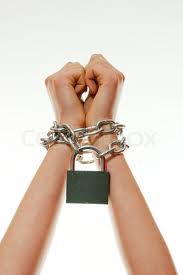The past can be a dangerous place. Often magnified by the lens of the present, mole hills indeed become mountains and insignificant creatures become history’s monsters. Like quicksand or a Chinese finger trap, our past sinks its hooks into us the more we struggle with its hold on our lives and perspectives.
“Man…cannot learn to forget, but hangs on the past: however far or fast he runs, that chain runs with him.“–Friedrich Nietzsche
Although I’ve removed much of my former prejudice regarding faith and the faithful over the last year through Project Conversion, some of that stubborn excess weight lingers. The trouble is, I’m not sure if the weight is necessarily a negative quality. After all it is weight–our very mass–and its marriage with gravity that keeps us on the ground.
A few days ago I witnessed a series of baptisms. Baptisms within Christianity (particularly the Protestant strands) are a public display of faith a new believer takes upon accepting Christianity. Catholic, Eastern Orthodox, and some Protestants perform infant baptisms that suffice for the duration of the believer’s life. The ceremony is both dramatic and pregnant with symbolism as the convert submerges and rises from the water as “a new creature in Christ” (2 Corinthians 5:17) just as Jesus is said to have died and rose again.
Being a fan of faith and given my vicarious joy in the religious passions of others, witnessing these baptisms brought me great pleasure. Except for one.
Each individual provided a short account as to their motivation for baptism. Some claimed they had overcome great personal tragedy by the power of Christ and wanted to make him lord and king of their lives. Others found comfort and release in the teachings and message of the gospels and so professed their faith in Jesus. But there was one little girl up there, no older than 10, who broke my heart.
She recently suffered the loss of her grandfather–I can’t remember what claimed his life–yet this loss apparently sent her down a path of questions regarding death and the afterlife. I do not know who mentored her on this subject, however her reason for accepting the Christian faith was not because she found the theology, community, or teachings of Jesus appealing, but because she feared going to hell.
Nearly every religious system has its custom version of hell or an abode of suffering. There are of course, many variations on the interpretation of what hell actually is, whether its a physical place or a state of mind, and how long its residents stay.
Jesus, who is often portrayed as little more than a spiritual hippie, spoke of hell more than heaven. Here is one of his more graphic gems:
“And the son of man (himself) shall send his angels and they will collect out of his kingdom all who cause others to sin and all evildoers. They will throw them into the fiery furnace, where there will be wailing and grinding of teeth.“–Gospel of Matthew 13: 41-42
In Islam, hell is also a bitter reality:
“Surely, those who disbelieve and did wrong; God will not forgive them, nor will He guide them to any way except the way of hell, to dwell therein forever.“–Qur’an 4: 168-169
Within certain interpretations of Hindu and Buddhist scripture, hell is experienced in both this life via the law of cause and effect (karma) and rebirth into lower realms of existence due to one’s actions in their current life. The difference, however, is that hell is not a permanent abode. There are many other faiths with similar concepts.
When I was a fire-spewing Christian in high school, hell was one of my most powerful tools of conversion. “If you continue this life of sin and disbelief, you are destined for the pit of hell,” I would tell folks. It was all in love, of course, because the last thing I wanted was for anyone to roast for eternity for not believing the same way I did.
In this way, I didn’t really care if you converted out of love for God and Christ or fear of hell. The important thing was that I ushered you through the door of Christianity. Is it right to scare folks into faith, to terrify them into belief? Doesn’t this amount to religious fear-mongering and bullying?
This 10-year-old girl’s confession of faith broke me into pieces because her decision to follow the teachings of Jesus had nothing to do with a guided and reasonable exploration of the faith, but a fear that borders irrational and smacks of the Bogeyman tactics used by some parents to keep us in line. And with this fear comes indoctrination based on fear. She will learn to “love” the hand that threatens her with hell should she fall out of step with the faith. On the other hand, because her faith was based on fear, she is just as likely (if not more so) to abandon her religion because fear never satisfies anyone. It’s like purchasing a mortgage you cannot afford. Eventually, when life gets tough, the whole thing will crash around you.
I often wonder what sort of god would even desire such a relationship. With my own children, would I prefer they obey me out of love because they know that I want only the best for them, or the fear of punishment? I’ll take love and understanding over threat of punishment any day.
Of course, not every Christian or member of other faiths hold a monolithic notion of what or even if hell is. I only illustrated this event because this young girl will likely transfer this mode of belief to others, perhaps her own children, and it mortifies me. Perhaps this is part of that chain I carry around from my past. Is the terror I feel for this girl simply the guilt I carry for being a hell-fire bully as a teenager? Perhaps, however I am committed to making lemonade out of lemons and so turning that sour guilt into sweet compassion is one of my life’s goals.
What are you doing with your past? Are you moving your fellow humanity with fear or compassion?




